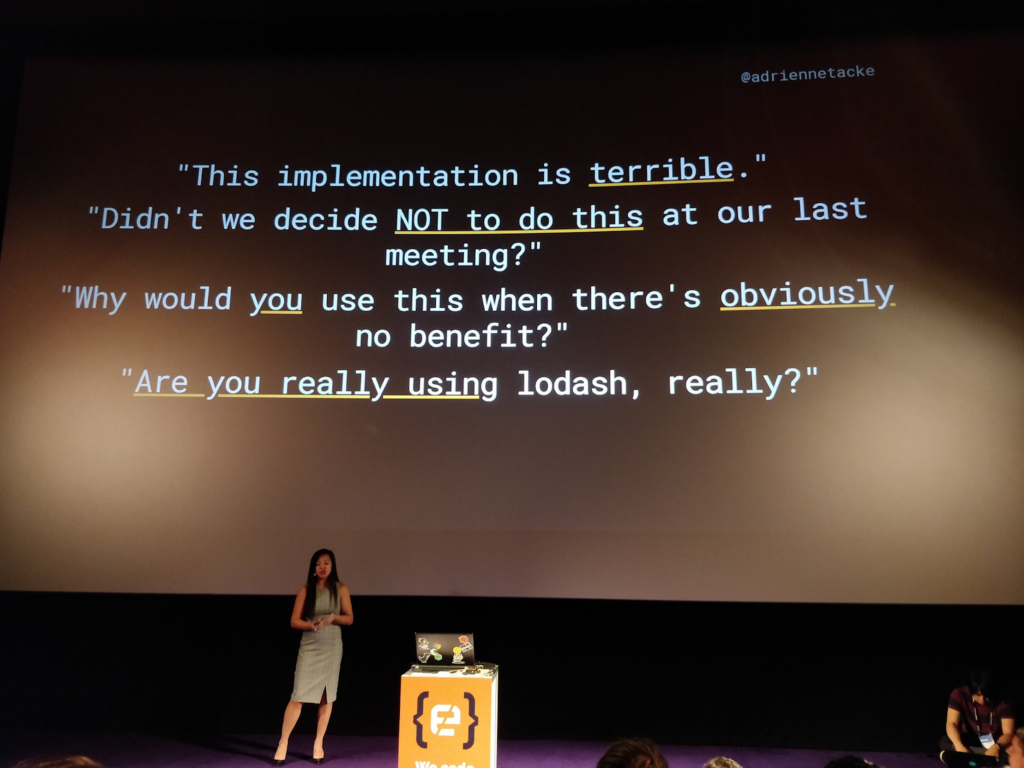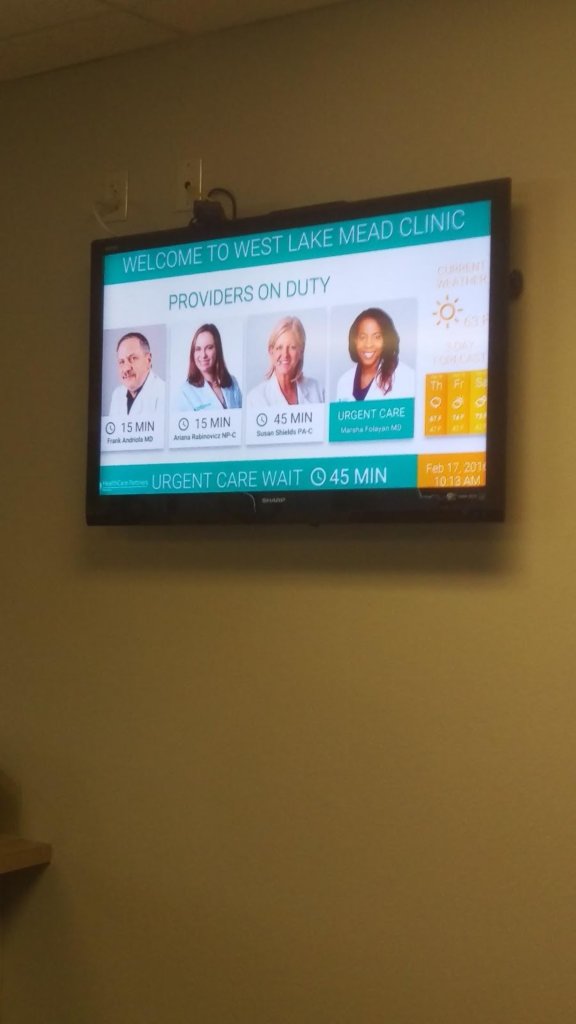A warm welcome to Adrienne Tacke, Mentor with both Girls Who Code and Code.Org, Speaker and Technical Instructor as she joins us for ‘Voices of the Azure Community’.
We hope you enjoy this insight into the work Adrienne carries out to support the Azure Community.
Please tell us about your own role with MongoDB and how your career has progressed to this point.
As all the best stories start, my current role at MongoDB was something I wasn’t even aware of or searching for in the beginning! I’ve been a .NET developer since I graduated college 8 years ago (eek!) and the last job I had was for a small startup here in Las Vegas. Towards the end of this job, I had this wild idea to set a career goal for myself, and that was to speak at one tech conference. I think I even tweeted about it!
Well, I researched how to become a speaker, applied to MANY CFPs, and amazingly, got accepted into seven conferences the first year I started speaking! I loved my first talk experience so much, I actually quit my job to pursue my remaining conference talks and prepare for them.
[Image: NEJS Conf, my first talk!]
It was also at this time that I finished my first LinkedIn Learning course where I taught developers how to automate their Azure development workflow. This combination of creating technical content and sharing it with others was something I continued to do for myself. After seeing my success, a connection I had made actually reached out to me and said they had an opening at MongoDB for the exact work I was already doing. I wasn’t searching for a job, but I figured I’d give it a shot. In the end, I took the job because of the awesome team and product and the potential to help even more developers!
[Image: Got my welcome Swag from MongoDB!]
You Mentor with both Girls Who Code and Code.Org. Would you tell us about the work these groups carry out and how you became involved?
Absolutely! For both groups, I’ve signed up as a local volunteer that is willing to do classroom visits and workshops. Through this program, I’ve been contacted by several teachers and Girls Who Code chapter leaders who have asked me to speak to their students! I’ve spoken to kids in the 3rd grade (who probably know more than me!) and to high school students considering their career choice. I’ve also led coding workshops to teach Python. Each visit is something that I truly enjoy, especially since I see many young girls look up to me and get excited that someone like them is a developer!
One of my career achievements is this:
[Image: Being an exhibited “Women Who Code” role model for a local elementary school]
I had a whole board dedicated to my achievements as a programmer exhibited at a local elementary school. I think this is so important so that girls have someone to look up to, so this was quite a happy moment for me!
What are the core benefits you see from your involvement in Mentorship programmes?
I’ve mentioned it before, but I’ll say it again because it matters: representation. I know very few women who are in the .NET community. I know even fewer who come from the same background as me! That kind of stuff can be disheartening at first because it can compound the effects of imposter syndrome or scare a potential developer from the tech industry altogether! I find direct value in setting an example for the next generation of software developers and to have them see that they are welcome.
Have you had or do you have a mentor?
I’ve had many “partial” mentors, so people who acted like my mentor and whom I learned from, at several jobs. But I’ve never really had a mentor in the idealized sense: a single individual who has helped me since the beginning of my career, the one who tells me how to navigate being a woman in this industry, and how to progress towards the more senior roles I aspire to fulfill one day. I hope that I have fulfilled that role for other women around me though!
You speak at several events annually Adrienne, please tell us how your Speaking Career has developed since you began? Do you have suggestions for other community members who hope to begin or advance as Speakers?
I’m a bit bummed that my conference schedule has been mostly cancelled this year, mostly because I felt like I was on an ideal trajectory for my speaking career. Not to mention, many wonderful places were on my list to visit! In the end, I’m hoping to bounce back and be at all the conferences again with even greater talks and demos!
[Image: Adrienne giving her Azure Durable Functions talk at Swetugg, a .NET conference in Sweden]
My speaking career developed the most as I started speaking to different audiences. Every audience is different; you can reuse talks, but if you don’t adjust them for location, background, confidence level in your jokes… then the talks are less relevant for the audience. I try to anticipate these differences while still bringing my own personality into my examples/slides/demos. At my conference in Berlin, for example, I made an impromptu joke in German with the little German that I knew. It worked!
[Image: Adrienne giving a talk on Conducting Humane Code Reviews at CodeMotion Berlin]
Speaking of which, the best advice I can give all speakers is to find ways to make your talk a bit more “you”. As an example, I did a talk on Azure Durable Function patterns. To describe the patterns, I used examples that incorporated Filipino food. This works in my favor in two ways: 1) I distinguish myself at these conferences as I give unexpected examples/demos and 2) I get to teach my audience a bit more about myself and culture! This surely makes my talk stand out in the sea of technical talks with the same examples!
You are also a technical instructor offering Azure & Cloud Development Courses?
I am! I have two courses published so far: Azure Essential Training for Developers and Automating Your Azure Workflow. I am currently working another one right now! (Shh, can reveal until it’s published!)
[Image: Recording in the whisper booth for my first LinkedIn Learning course!]
My first published course was Automating Your Azure Workflow (I think it has recently been renamed to Developing Azure Compute Solutions) and it was quite an experience for me! I had reached out to LinkedIn Learning via the Women Who Code newsletter as they were looking for instructors on Cloud Development! After going through their interview and sample technical video process, I was in! This course was entirely designed by me and based on my beginnings as a junior .NET developer. It focuses on how to set up Azure Repos for proper version control, building your own CI/CD pipelines with Azure DevOps, and explores how to configure each part to effectively automate the software development process, one that’s now considered standard today! I won’t ever forget how excited I was when I visited LinkedIn’s studios to record my first course!
[Image: Recording my first live action LinkedIn Learning course in California!]
The second course, Azure Essential Training for Developers, was the first time I created a full “live-action” course. Whereas I recorded voice overs and screencaps for the majority of my first course, this one was focused more on direct dialogue to the camera and visually explaining concepts with video!
This is a longer course filled with a broad overview of what a learner needs to know to start developing with Azure. It is an extremely helpful resource that focuses on the cloud concepts, Azure concepts, tools, and services that are fundamental to know as an Azure developer! It was incredibly fun as I exercised some creativity in explaining a few concepts (cakes as a metaphor for containers?!) and it was much more involved to craft out the videos. I’m looking forward to creating another live-action course already!
With such a varied workload could you describe what your working week entails?
As a senior developer advocate for MongoDB, my weeks do vary, but usually have the same combination of the following:
- Planning / Strategy meetings
- Focus time to prepare new CFPs, upcoming talks, and demos
- Some days I work on blog posts for the Developer Hub, which is MongoDB’s go-to resource for technical tutorials
- Other days, I prepare for Twitch streams for the official MongoDB channel. This can involve doing tech checks with guests, prepping live coding demos, crafting social media posts to drive people to our stream, and planning out rough agendas with colleagues.
- Weaved within the majority of that work are other “community” tasks like:
- Planning and hosting free workshops with various coding groups
- Speaking at user groups / meetup groups
- Crafting content for my personal brand (both technical and gaming related)
And as if I’m not busy enough, I also have a few clients that I work with on part-time consulting contracts. It’s a busy life, but I enjoy it!
Would you outline what you find to be the most challenging and the most rewarding aspects of your role?
So far, it’s probably been the most challenging to juggle the multiple tasks I have to do for work and free time because they are quite similar (have you read the previous answer? 😂). Meaning, I’m expected to craft great technical content for work and for the community. It can be quite challenging to keep the cadence for both!
The most rewarding aspects of my current role is the freedom to be creative when it comes to creating the aforementioned content! From Twitch streams with live coding to YouTube tutorials that are concise and succinct…this role is definitely giving me the opportunity to expand my skill set beyond programming. I can now take my current programming skills and experience and combine them with some new skills in videography and editing to craft awesome content for more developers!
To date what has been your proudest accomplishment?
It may be surprising to some, but it was when I finished and deployed my first .NET application to several clinics in Las Vegas. I built a Clinic Wait Time app, which displayed the estimated wait times to patients in their respective clinics. As a junior .NET developer, I was extremely proud to see something I had created impacting real people!
[Image: Clinic Wait Time app, West Lake Mead location]
This application was particularly important as I learned how to incorporate third-party APIs (the little weather forecast widget you see on the right), learned how to properly scale applications out to multiple locations, and really incorporated the end users (patients) into my design. Most patients at these clinics were older and had a harder time reading smaller items on any screens. This is where I got the idea to place the actual picture of the doctor as the main focus of these “wait time cards” rather than just listing their names. I also increased the font for the most important information, like the wait time in minutes and clinic location, as that’s what patients cared about most.
To this day, and despite my other accomplishments, this still brings me a great amount of pride!
[Image: Clinic Wait Time app, West Charlestone location]
In your opinion what is the most exciting thing about working with Azure?
I think Azure’s broad capabilities to engage all kinds of developers is its most exciting characteristic. You can connect with developers who have experienced similar programming challenges, are interested in the bleeding edges of tech,, and are solving similar problems as you with one of Azure’s services or tools. That kind of breadth means you’ll always find people you can relate with through Azure! Also, it makes me incredibly happy that most of their documentation is quite helpful!
What is your favorite Azure Product and why?
I absolutely love Azure DevOps. It was my first introduction to what continuous integration and continuous deployment was all about. Learning how to implement my own pipelines and configure them in various ways taught me much more about building a robust development workflow. I learned about various deployment strategies, like blue/green and canary deployments, triggering full and partial builds based on pattern matching, securing deployments with various approval gates, and much more. These were all things that made me a better developer. Azure DevOps just made it that much simpler for me to experiment and learn with!
What in your opinion has been the biggest advance in Azure in the past 18 months?
I think the great integration of GitHub Actions for Azure (and its availability with VSCode and other popular tools soon after) is a massive step towards bringing together developer communities. We remove barriers due to technology and platform by doing things like this and I think it will pay off in the long run.
Could you describe what the unique spirit of the Microsoft Community means to you?
To me, the Microsoft Community spirit is one of resilience and innovation. For Microsoft to arrive at where they are now, especially with their prior history and philosophy, is something really exciting to me. There are more efforts to be open, both with their tech and their community. There are greater integrations happening that we thought we’d never see before. Overall, it’s this particular spirit that keeps me coming back to the Microsoft Community!









